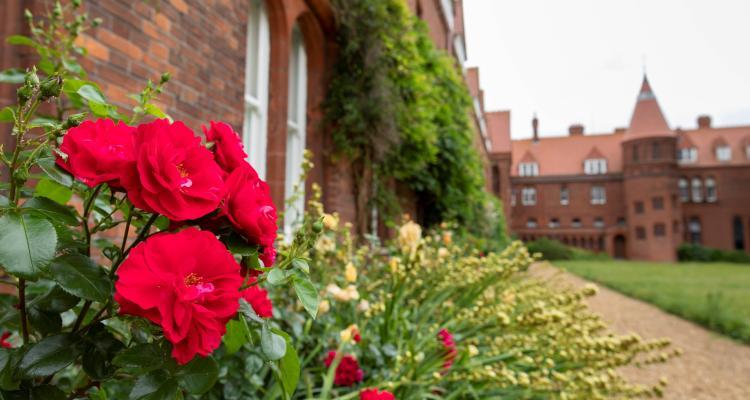Girton's flexible and permanent programme of recognition, which seeks to respond as appropriately as possible to its historic links with the Transatlantic slave trade and its position in a web of legacies of enslavement, saw its most recent event at the Symposium in memory of Dr Betty Wood (1945-2021) on 4 November 2023.
Betty was a Life Fellow at Girton and a major social historian of enslavement and plantation life. She paid particular attention to informal plantation economies and systems of religious belief within communities of enslaved people, research which made important contributions to scholarly and theoretical discussions of agency in the brutal Transatlantic world. Her research is all the more important to Girton following the uncovering of Girton's connections to the Roslin plantation, Virginia, via the Gamble bequest.
Informed by Betty's work and the research of Girton's Legacies of Enslavement Working Group, now the Legacies of Enslavement Committee, as well as similar projects across the University, speakers at the Symposium sought to recognise and envision a response to Girton's position as a historical beneficiary within a violent economic scheme and intellectual system. Dr Maggie Kalenak's sensitive excavation of the records from the Roslin plantation, and Dr Hazel Mill's cartography of the College's memory-work, laid out the contours of this disturbing legacy.
Student interns, having completed research projects responding to the work of the Legacies of Enslavement Committee, made contributions which broadened the terms of the discussion beyond Girton, Roslin, and Jane Gamble. Nyeleti Brauer-Maxaeia and Edward Suckling presented their research into ongoing exclusions and absences in memory and research across the University, with Nyeleti offering a genealogy for the stark whiteness of the Modern Languages curriculum and Edward tracing the complicitness of Girton's material culture in colonial archaeology. Moving away from Cambridge, Grace Marshall considered Black archival responses to the violence of plantation records, and Kia Taylor-Powell presented a short film surveying the breadth of structural legacies of enslavement via the tools of family history and autobiography.
The Symposium took the form of a discussion, rather than a series of monologues. Input and exchanges from members across the college community and beyond, meant that the afternoon provided an opportunity for students and fellows to come together in an ongoing project of recognition and commemoration.
Written by Girton student Grace Marshall (2022)

